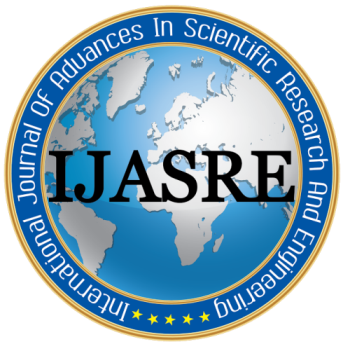Hepatoprotective Effect of Aqueous Seed Extract of Moringa Oleifera Against Cadmium and Lead Toxicity in Experimental Rats
DOI:
https://doi.org/10.7324/IJASRE.2018.32609Keywords:
Moringa oleifera, Lead, Cadmium, AST, ALT, ALP.Abstract
Moringa oleifera also was known as horseradish tree is a rapid growing deciduous shrub. It is widely cultivated in the East and Southeast Asia, Africa and the West Indies. Different parts of this plant are important sources of proteins, vitamins, phenolics and important minerals, hence the high range of nutritional value and medicinal uses. Almost all parts of Moringa oleifera tree have been used for the treatment of various ailments. This study is aimed at finding out the potential hepatoprotective effect of aqueous seed extract of the plant. The effect of daily administration of aqueous seed extract of Moringa oleifera for two weeks on the serum activities of aspartate aminotransferase (AST), alanine aminotransferase (ALT) and alkaline phosphatase (ALP) was studied. The treatment involved oral administration of 100mg/ml of Lead and Cadmium to all the animals with exception of control group in order to induce toxicity and followed by oral administration of low dose (189mg/Kg) and high dose (378mg/Kg) of aqueous seed extract of Moringa oleifera to evaluate its antitoxic effect. The control group was found to have AST, ALT and ALP activities of 23.33 ± 6.35, 20.33 ± 1.53 and 32.22 ± 3.85IU/L respectively. The serum levels of AST, ALT and ALP, when compared with control at p=0.05 significantly increased after administration of Lead and Cadmium solutions which indicated hepatotoxicity. Upon administration of both doses of the extract, there was a slight and sharp decrease in the serum activities of ALT and ALP respectively w, although AST level did respond to the extract treatment. The result revealed that the aqueous seed extract of Moringa oleifera posses hepatoprotective potential against Lead and Cadmium toxicity in experimental rats at the doses administered.
Downloads
How to Cite
Issue
Section
License
Copyright (c) 2018 Muhammad A. Madungurum, Salisu A. Abubakar, Hassana Ismail

This work is licensed under a Creative Commons Attribution-NonCommercial 4.0 International License.







